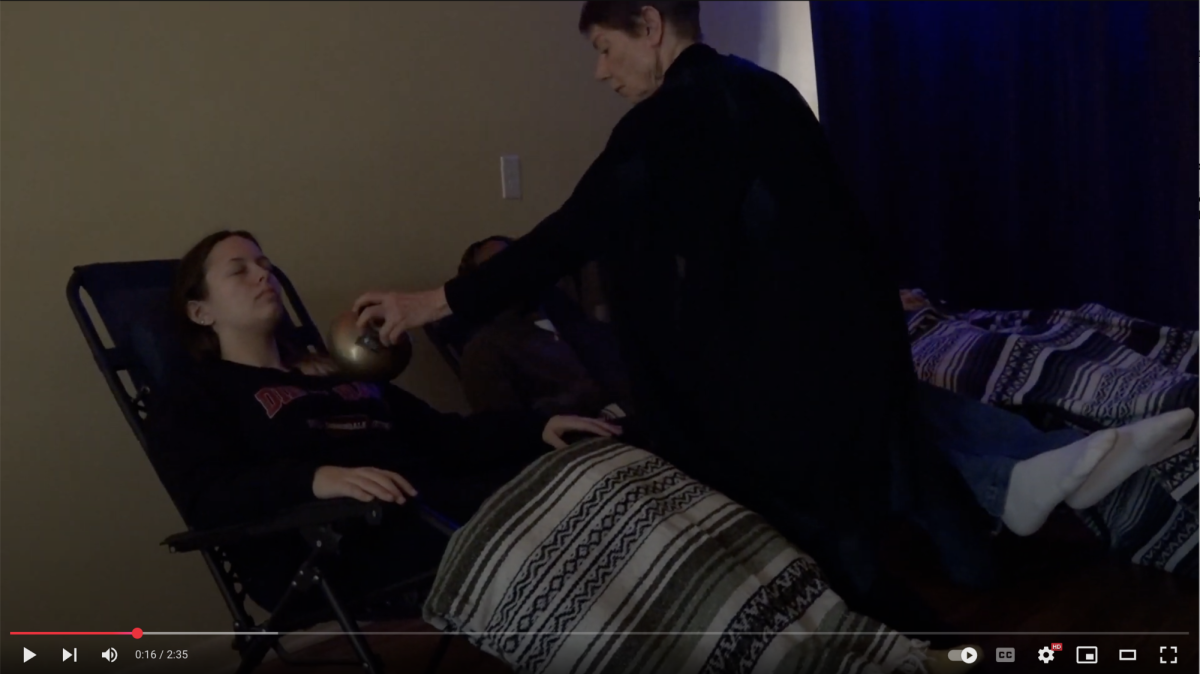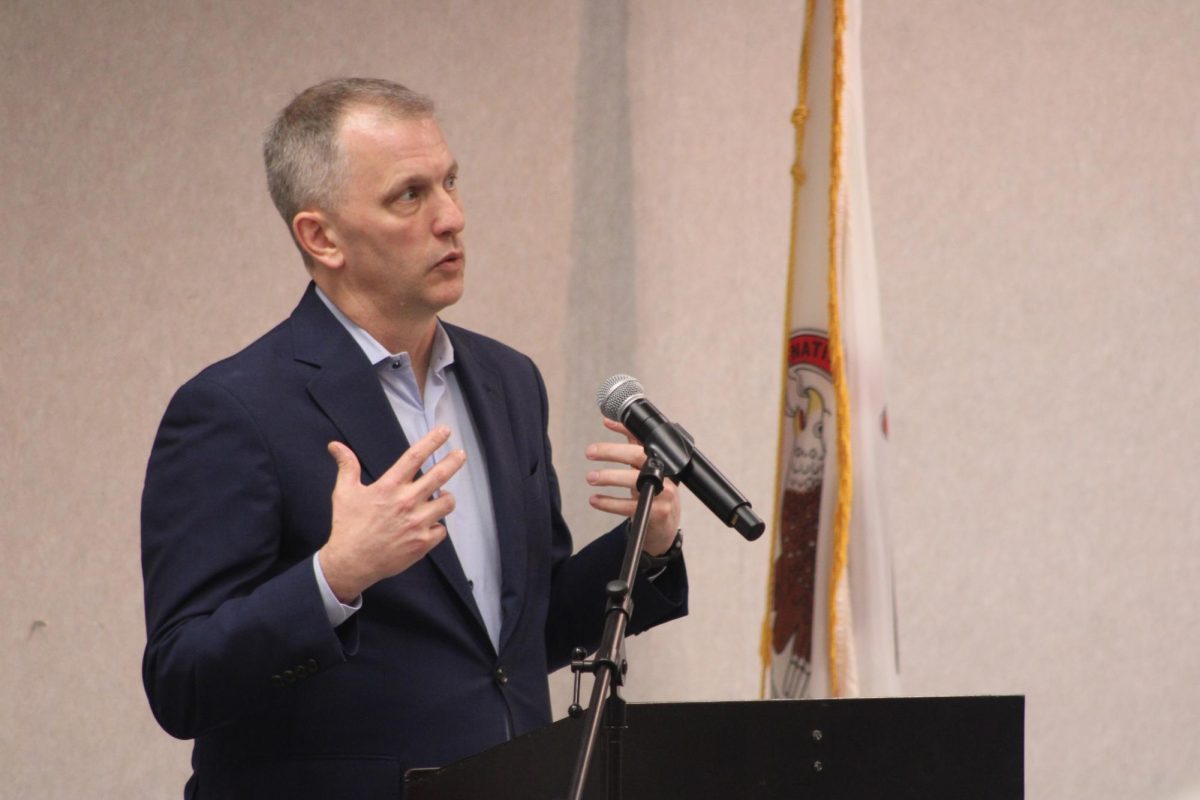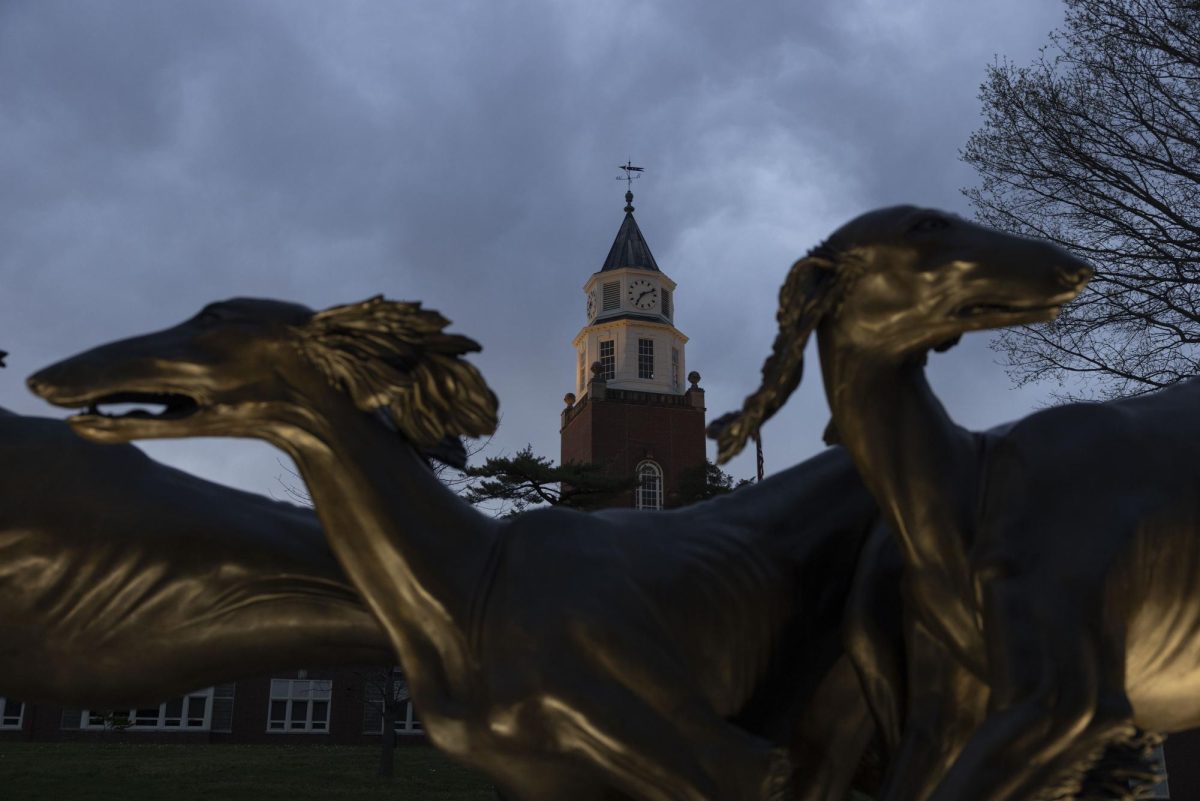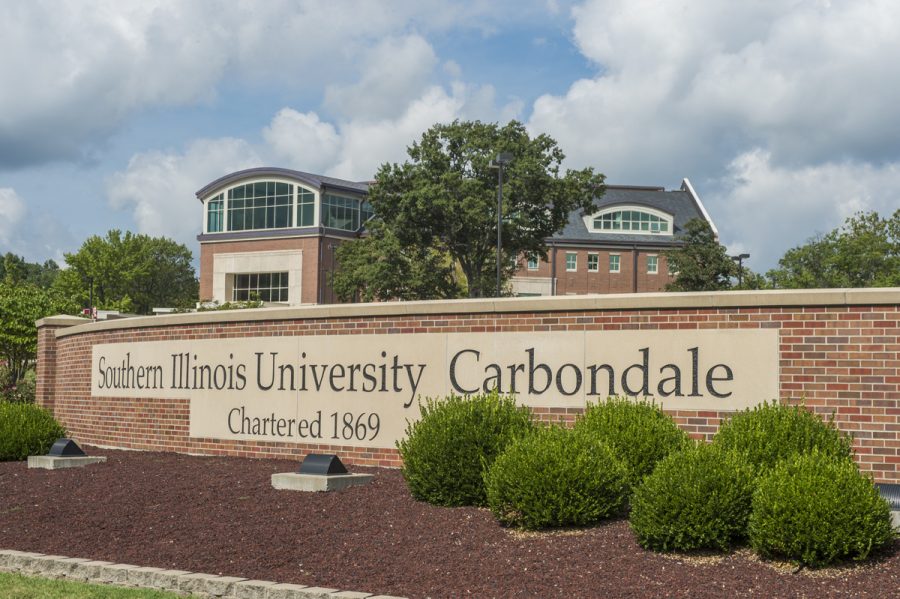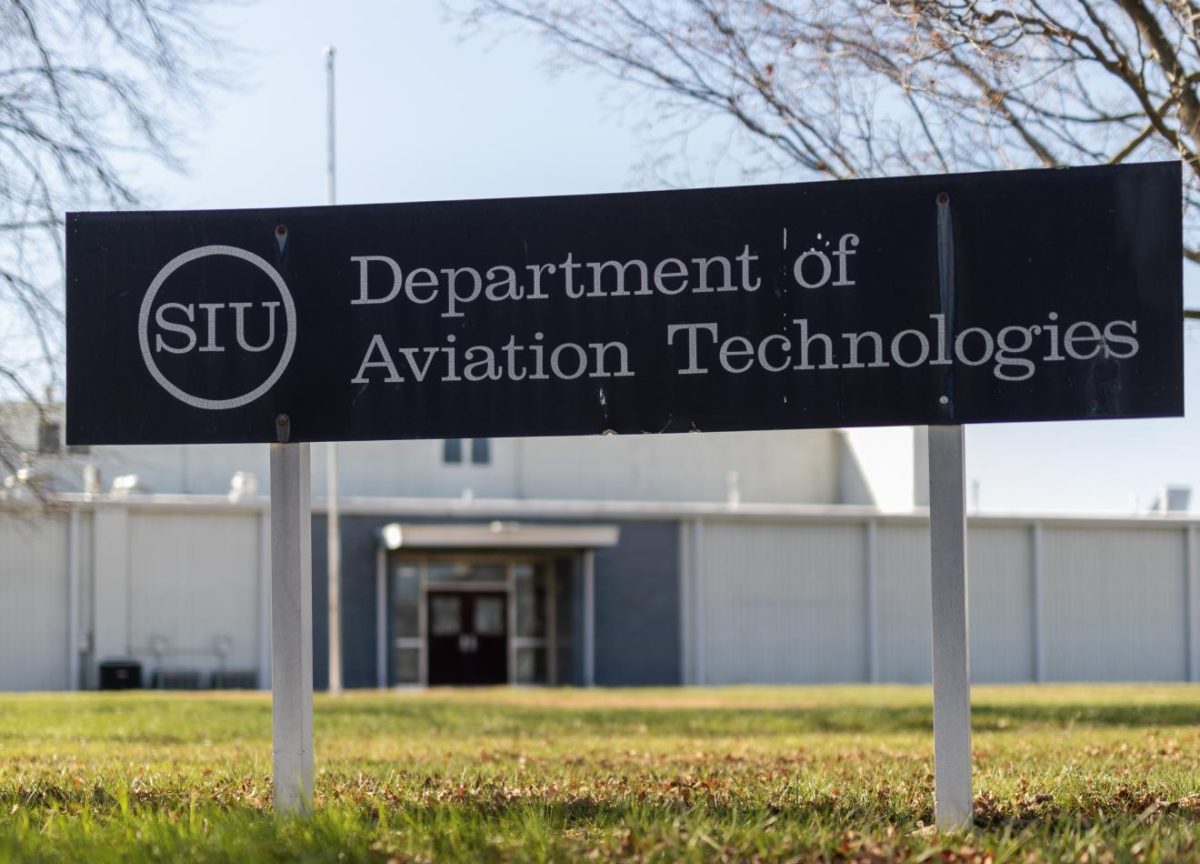(Editor’s note: In the print version of the Daily Egyptian, the quote by Professor Bill Freivogel was mistakenly attributed to Chancellor Austin Lane in a pull quote. The Daily Egyptian apologizes for the error.)
SIU’s distance education funds, monies raised by individual schools and departments by putting their programs online, are once again at the center of a controversy, with some school leaders saying the administration is breaking a key promise after removing the much-needed funds from their coffers.
Former Chancellor Rita Cheng had allocated the money to schools and departments to spend on items such as equipment and student or faculty travel. When current Chancellor Austin Lane revealed millions of dollars in rollover distance education funds would be used for another purpose, he suggested it was just a temporary fix to help pay down a large debt caused by the 2015 state budget impasse.
Advertisement
Now Lane has told the Faculty Senate’s Executive Council the university is completely changing how those funds are handled from now on.
In an email to the College of Liberal Arts listserv, Dean Joddy Murray explained it to his faculty this way:
“To be clear, we are in a 10-month “chill” on all spending—everything requested will be intensely scrutinized at the Provost level. There is no such thing as “DE [distance education] money” anymore. Everything is going toward the final debt repayment.,” he wrote.
According to Journalism Professor of Ethics and Law Bill Freivogel, the whole affair is a violation of university promises.
“I’m afraid it shows that one chancellor’s promise is not binding or respected by this chancellor,” Freivogel said. “Universities run partly on trust, and this kind of action breaks down trust.”
Last semester, The Daily Egyptian reported outrage from many faculty and school leaders at the university administration’s choice to “scrape” distance education funds from their accounts. Administration didn’t inform them of the change at the start of SIU’s financial year on July 1, dispensing a variety of contradictory answers to questions about the funds and disrupting the budget that directors had already planned for.
One rumor at the time was that distance education funds would be canceled altogether. Despite Lane’s past reassurances, along with an increased state appropriation this financial year, for all purposes but hiring and salary, that is now true.
Advertisement*
Murray’s email said faculty have been informed that distance education funds no longer will be paid directly to schools and departments, except for special requests to be rigorously scrutinized by SIU administration. Only funds needed for personnel issues will be left up to the deans.
“It is not going to stop us from being able to cover the instructional needs,” Lane said to the Executive Council. “But it will cause teams to work with the provost as it relates to those one-time purchases or commitments that people already have. Some of that could be travel that people will be able to do but there will just be a little closer eye in terms of what we’re spending those dollars on. We anticipate if we follow that [plan] for the next 10 months, that we’ll have the payback. Payback will be history.”
In the short term, this means that rather than just losing past rollover funds, schools will no longer get a cut of distance education revenue generated by their efforts to adapt curriculums to an online format. In the past, these funds offered teachers and school directors great financial discretion and autonomy.

Contrary to this table from an SIU administrative memo responding to the original Daily Egyptian story, Lane has told the Executive Council of the Faculty Senate that, to end the Fiscal Sustainability plan this year, SIU will have to come up with $12 million rather than $5.9 million scheduled for fiscal ‘23. SIU has paid more than projected for nearly the entire duration of the sustainability plan.
In the Faculty Senate meeting, Lane referred to the funds as “something that we basically borrowed from ourselves,” and said that rumors of the school borrowing from SIUE are a myth. According to him, SIUC is trying to “rebuild our [rainy day] reserve.”
Lane said the administration has been going back to departments near the end of the fiscal year and asking for money back in order to make Fiscal Sustainability Plan payments.
“Overall, we feel like if we all team up together over the next few months, to get this payback out of our way, we won’t have to come back to departments like we usually do in March or April and say, ‘Hey, we need 250,000 of your budget,’ or ‘we need half a million of your budget back.’ We’re not going to be doing that this year,” Lane said.
Although inflation increased by 6.5% in 2022, state appropriations could increase by approximately $14.13 million if the state Senate accepts the fiscal year 2024 Illinois budget recommendations. On June 21, 2023, Vice-Chancellor of Administration and Finance Susan Simmers told the Daily Egyptian that approximately $7.3 million in distance education funds would be carried forward into FY 2024, although the books were 9 days from closing. Additionally, Lane hinted that student enrollment numbers would be impressive this year. Provost Sheryl Tucker said that deans will have the opportunity to hire more faculty in fiscal year 2025 based on increasing enrollment.
However, this won’t translate to immediate financial success. The next 10 months of repayment will likely put a strain on the university on many levels, and the reinstatement of distance education funds after repayment is not guaranteed.
“We’re going to make that $12 million hole hopefully go away with personnel savings, that’s going to be our key area where we think we’re going to net about $9 million in AP and civil categories,” Lane said. “So for the next 10 months, it’s going to be really important that we hold the line on hiring. Unless it’s a critical position, it would not be one that we would automatically hire.”
Lane also said that the administration will find opportunities to cut superfluous expenses.
“Obviously we’re going to focus on trying to clean up existing positions that are on the books that, quite frankly, were either over-budgeted or – areas where we can find savings within personnel,” he said.
Lane referenced last semester’s union negotiations, which resulted in a long overdue 2% raise across the board, as another drain on free funds. However, for academic personnel hired or currently paid using distance education funds, Lane promised that cuts would not be as severe.
“They’re going to be able to still hire or fulfill incoming adjunct or the faculty salaries that they have that have been paid out of distance funds,” Lane said. “What we’re looking at closely is the non-personnel portion of [distance education] funds. There were a lot of one-time buys in there from different areas. We’re going to be looking at that pretty closely just to make sure before those are approved… the timing on this will allow us to be thinking about the new collective bargaining agreements with our faculty in terms of their contract that’s going to be important in another year.”
Advertisement






